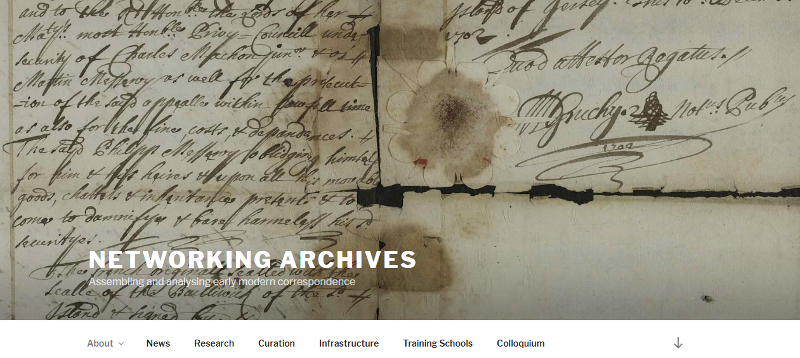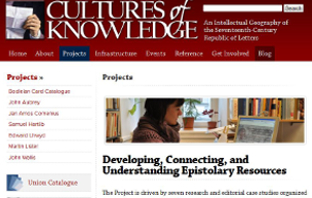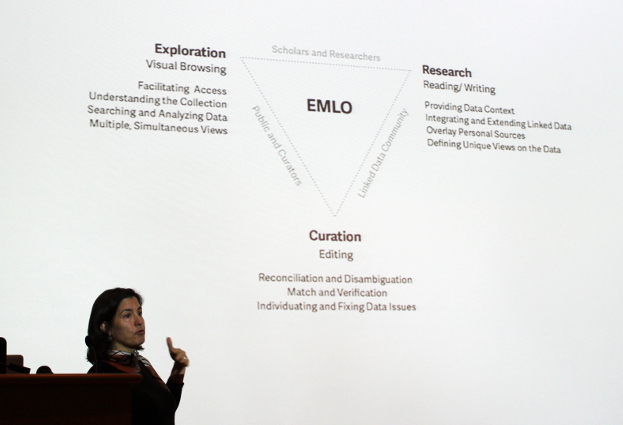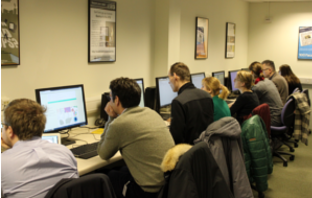We are pleased to announce the award of a three-year, AHRC-funded research grant for a project entitled ‘Networking Archives: Assembling and analysing a meta-archive of correspondence, 1509–1714’ (http://networkingarchives.org), led by Professor Howard Hotson (PI, University of Oxford), Dr Ruth Ahnert (Co-I, Queen Mary University of London), and Dr Sebastian Ahnert (Co-I, University of Cambridge).
‘Networking Archives‘ will create a meta-archive of nearly 450,000 letter records — which will form this country’s largest curated dataset of its kind for the period — and pioneer a combination of traditional scholarship and quantitative network analysis to reveal previously unexamined patterns of political and scholarly information-gathering. This meta-archive will be created by uniting three roughly commensurate datasets: the data already published on ‘Early Modern Letters Online’ [EMLO], supplemented by records of the c. 130,000 letters in the Tudor State Papers 1509–1603 (domestic and foreign), curated but not yet published by the AHRC-funded project ‘Tudor Networks of Power’, and a still larger quantity of letter records, freshly curated by the project team, from the Stuart State Papers, 1603–1714 (domestic and foreign). The project will combine quantitative network analysis with traditional research approaches to discover what the ‘meta-archive’ reveals about the ways in which ‘intelligence’ was gathered and transmitted in the early modern period in the service both of consolidating of state authority and of open intellectual exchange within the international ‘republic of letters’.
This collaborative work will be structured around a series of interdisciplinary ‘laboratories’ in which experiments will be conducted on the newly curated and merged data. Alongside an easy-to-use, exploratory web-interface developed to lower the barrier for researchers employing common quantitative network-analysis methods, a series of algorithms and scripts will be developed to examine more advanced research questions involving overlapping networks and their change over time. Parallel to the laboratories, the project team will develop a curriculum to support the teaching of data curation and network-analysis methods to early career researchers, which will be trialled through a set of training schools and a colloquium, and then shared for reuse as standalone course packages.
The research outputs from these activities will be presented in a wide variety of traditional and non-traditional settings, including large-scale datasets, technical papers, informal blogposts, peer-reviewed scholarly articles, a popular history on espionage and surveillance in the early modern world, a collaboratively researched case study of intelligencing at the centre of the meta-archive, and an edited collection of essays emerging from the training schools and colloquia. At the conclusion of the project, all components of the project’s infrastructure (data, software, documentation, and methods) will be consolidated and shared under open access/open source to simplify its deployment and reuse at other institutions.
For more news and information (including forthcoming job postings funded by the project), please follow ‘Networking Archives’ on Twitter (@networkarchives) or visit the website (http://networkingarchives.org).












